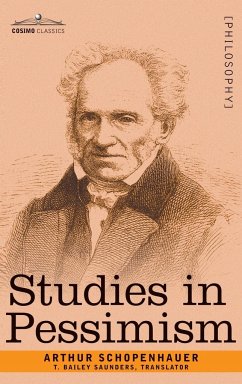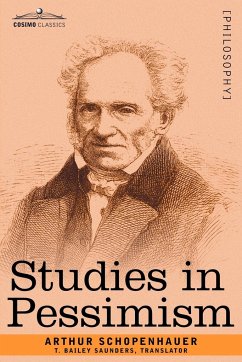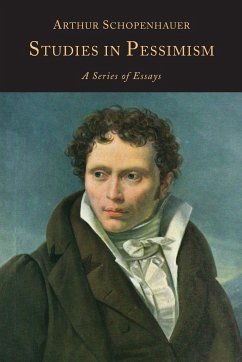A disciple of Kant and a significant factor in shaping Nietzsche's thinking, Arthur Schopenhauer worked from the foundation that reality is but an extension of our own will, and that human life is characterized chiefly by misery. In this essay, translated by THOMAS BAILEY SAUNDERS (1860-1928) and first published in English in the 1890s, Schopenhauer offers his thoughts: - on "the sufferings of the world," and why evil is positive - on "the vanity of existence" - on suicide - on immorality, and why it is less than desirable - on women, and why "they remain children their whole life long" - and more. Students of philosophy and of the 19th-century intellectualism will find this a fascinating read.
Hinweis: Dieser Artikel kann nur an eine deutsche Lieferadresse ausgeliefert werden.
Hinweis: Dieser Artikel kann nur an eine deutsche Lieferadresse ausgeliefert werden.








